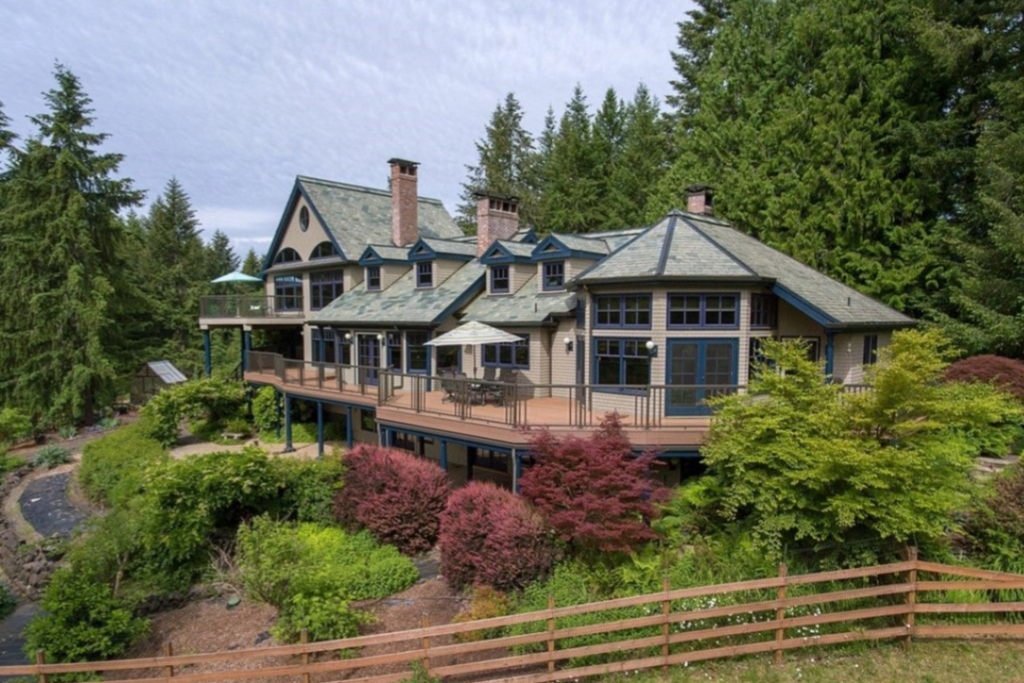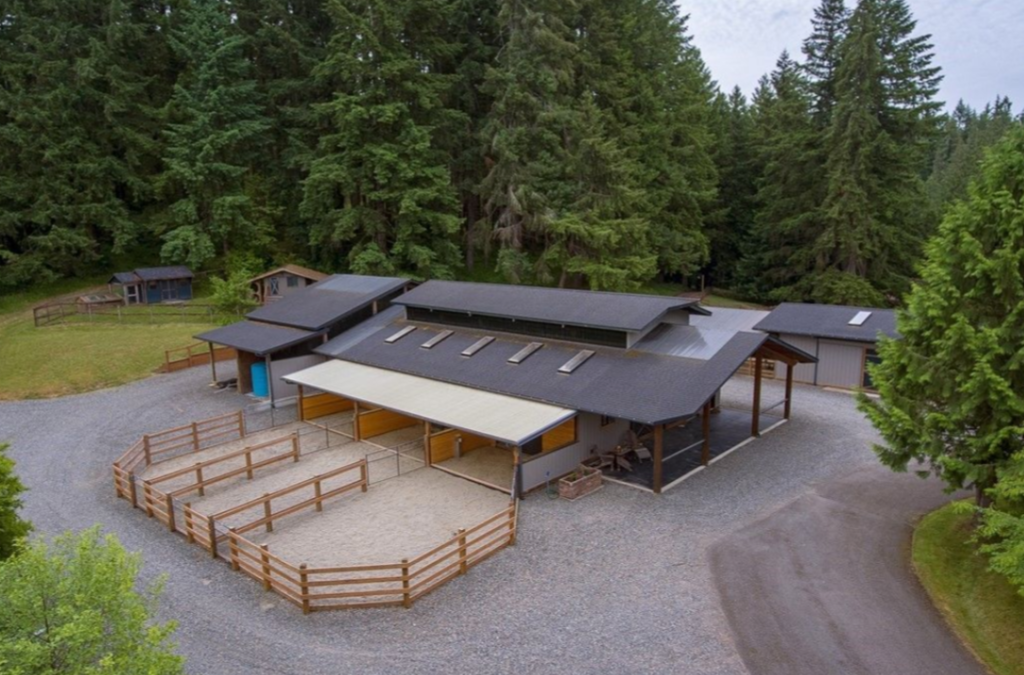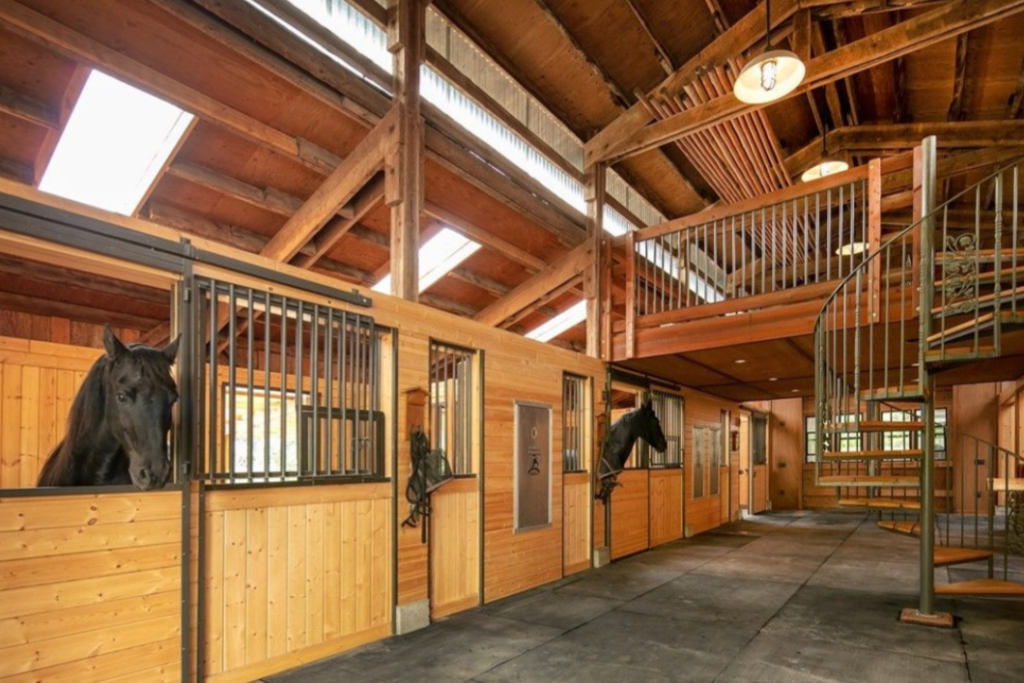We are all about our weekly #dreamfarm posts as we showcase amazing equestrian properties that we would love to keep our horses at! If you’re in the market for your own dream farm, or if you’re putting the pieces together to one day purchase your own, read on for tips from equestrian properties specialist KiamaLise Herres. She’ll help you find the right farm fit and streamline the buying process. This piece originally appeared on our sister site, Eventing Nation.
I love my job of helping people buy and sell equestrian properties. This is a challenging niche but one I’m very passionate about, as are my clients. It is such a joy to be part of making someone’s lifelong dream of owning their own horse property become a reality. However, this is one of those endeavors where a buyer, if they aren’t working with an equestrian property specialist, may not know what they need to know until it’s too late. Many learn the hard way. To avoid some common pitfalls when purchasing an equestrian property, here are five helpful tips to get you on your way.
 Misty Ridge Farm. Photo by Windermere Real Estate/KiamaLise Herres.
Misty Ridge Farm. Photo by Windermere Real Estate/KiamaLise Herres.
1. Hire the right agent.
Most people don’t realize that some real estate agents specialize in the equestrian market. If you are buying a horse property that is already set up perfectly for you (do these even exist?) then you’re all set. But, more likely you need to add an arena, increase the barn size, or put in paddocks. You will need an agent who can help you determine if these changes are even possible. A dentist and heart surgeon are both doctors, but I would only go to one to fill a cavity!
Choose your representative wisely. Is your agent of choice a horse person? Do they understand the requirements of your discipline? Do they understand the particular restrictions of each county? Most people’s biggest investment of their life is their home, and so often they never properly interview their agent. Here are some questions to ask when interviewing prospective agents:
- Do you specialize in equestrian properties?
- Do you have horses of your own?
- Do you have your own horse property?
- How challenging is it to find what I want in the areas where I’m looking?
- How many equestrian properties a year do you sell?
Often finding the perfect horse property takes time. If you do your homework likely you will find an agent who will not only serve you well, but become a great resource long after the property closes.
2. Get to know your county or city permitting department.
Once you and your agent have identified a property that seems like a good fit, take the time to make an appointment at your permitting department at the local jurisdiction to which the property belongs.
Your permit department can answer most of your questions regarding allowed use of the property and identify any future “red flags” for building barns or arenas. If the property already has a barn and arena make sure they are permitted. If you buy a property whose outbuildings are not permitted, find out if this will restrict your use of them, affect insurance, or challenge any future plans you may have for the property.
Bear in mind, the county or city will most likely not give you a completely clear answer on building viability for things like a barn or arena for properties that don’t currently have a permitted arena or barn. They most likely will say you will need to apply for the proper studies to be conducted and permits before they commit, and you can’t do that until you own the property. However, they should be able to explain the zoning and use permitted on the property.
They can also tell you if there are any critical areas or wetland areas identified on the property that could raise challenges in the future. If there is a well and/or septic on the property they can explain what the building setbacks are and how far away you must keep your horses from those utilities. It’s tempting to skip this step especially if you are looking at a piece of property that seems to have clear open pasture space, but some counties and cities are more strict than others and it would be awful to buy the place only to find out there is a large critical area buffer on the property preventing you from having what you want.
 Photo by Windermere Real Estate/KiamaLise Herres.
Photo by Windermere Real Estate/KiamaLise Herres.
3. Hire the right lender.
All lenders are not created equal. Please, please, please do your research long before you ever begin looking at properties. I like to work with a local mortgage broker who has loan products specifically for horse properties. A mortgage broker’s job is to shop for your needs and find you the loan product that best suits you and the type of property you want.
A mortgage broker has access to many loan products. A bank will only have their own loan products. If you choose a big bank, know that they most likely will not have local underwriters, and often also shy away from properties over 15 acres, with arenas and dozens of stalls. Residential lenders often do not want to make loans on anything that looks like it could be developed for additional housing or could be used for a business, like boarding or training. If you plan on making money on the property or if it has been used commercially in the past, a regular conventional loan may not be approved. Many horse properties have accessory dwelling units like mobile homes for the caretakers. These can also pose a challenge for conventional loans. Ask your lender what type of loan products they have that can address these potential obstacles.
4. Understand the limitations of the property.
You know that saying about fitting a square peg into a round hole? I see a lot of properties where someone is trying to put way too many horses onto a place that really can’t accommodate them. This is a surefire way to beat up your property quickly! Understand the topography of drainage and the water table before purchasing. I’ve seen 5-acre properties maintain 20 horses beautifully and I’ve seen 20 acres properties ruined by 5 horses. It’s all about managing mud, keeping up with maintenance, rotating your pastures, fencing and the like. If the property doesn’t look like it will work for your end goal, keep looking. If you outgrow the property, sell it and find something that is a better fit. Know how to work your property or it will quickly be working you.
 Photo by Windermere Real Estate/KiamaLise Herres.
Photo by Windermere Real Estate/KiamaLise Herres.
5. It’s all about balance.
The biggest challenge I have as an equestrian properties’ specialist is finding equestrian properties that have balance. More often than not, we find properties that have great horse amenities but the home is subpar, or the home is great, but the set up won’t work well enough for the horses. Keep in mind that if the property is even close to balancing out, you may need to put a little work into it to achieve perfect balance. If it looks achievable and within your budget, then jump on it!
About KiamaLise Herres
KiamaLise Herres is an Equestrian Properties Specialist with Windermere Bellevue Commons and Windermere Equestrian Living. She is a mother of two wonderful children, and she lives on her horse farm in Monroe, WA with her husband, 6 horses, 2 dogs and their trusty barn cat. Visit her website here to view available listings.
